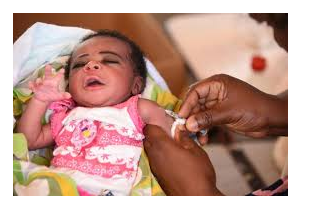Back to: HOME ECONOMICS JSS3
Welcome to Class !!
We are eager to have you join us !!
In today’s Home Economics class, We will continue learning about Child Development and Care. We hope you enjoy the class!

TOPIC: Child Development And Care
SUB-TOPIC: COMMON CHILDHOOD AILMENTS
CONTENT:
Colic: it is caused by (painful contractions of muscle) cramps in the intestines. It causes discomfort to the baby. This sickness is common during the first 3 – 4 months but goes lesser after that.
Constipation: this involves passing of hard stool at long intervals or not passing it at all. This is common with bottle feeding babies.
Diarrhoea: it is a sudden increase in the number of stooling especially if they are lesser and watery. It can be caused by
- Unsuitable diet
- Over-the-top feeding
- Infection

Nappy Rash: this occurs when babies have rashes in the nappy areas. It is caused by;
- Use of dirty napkins on baby
- Leaving soiled napkins on baby for a long time
- Not rinsing baby napkins properly after washing.
Immunization
These are vaccines given to children against diseases such as polio, small pocket, measles, whooping cough, tuberculosis etc. It is given to children in infants’ welfare clinic, immunization centres and hospitals.

Types
- Triple vaccines (DTP): this is a mixture of three vaccines for tetanus, whooping cough and diphtheria. It is given by injection.
- Polio: for protection against polio d muscle weakness and paralysis)
- Quadruple vaccines: protection against these four diseases; diphtheria, tetanus, whooping cough and polio
- pox vaccines: this is given by injection to protect against smallpox
- Measles: to prevent measles and given by injection
- BCG vaccines: protects against tuberculosis.
Immunization schedule
| Time | Immunization |
| At birth | B. C. G |
| 2 months ( 8 weeks) | The first dose of DTP The first dose of polio vaccine |
| At 3 months (12 weeks) | The second dose of polio vaccine |
| 4 months (16 weeks) | The third dose of DTP The third dose of polio vaccine |
| At nine months | Measles vaccine |
We have come to the end of this class. We do hope you enjoyed the class?
Should you have any further question, feel free to ask in the comment section below and trust us to respond as soon as possible.
In our next class, we will be talking about Textiles. We are very much eager to meet you there.

WHAT IS REBBIS
Please check the Agricultural Science notes for senior classes for definition of rabies. Thank you.